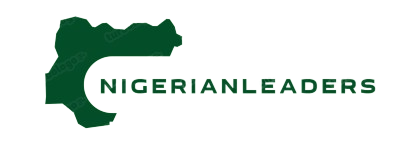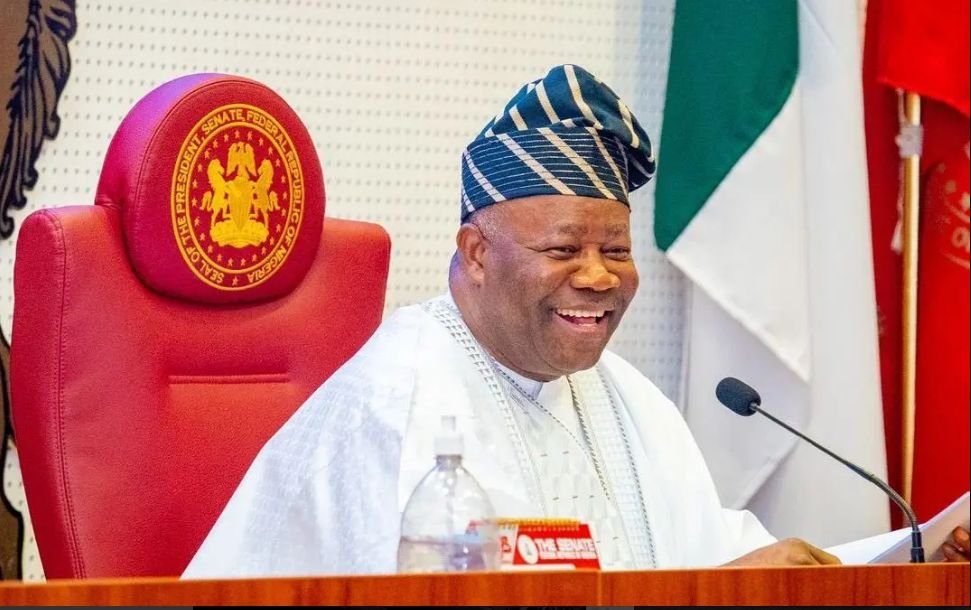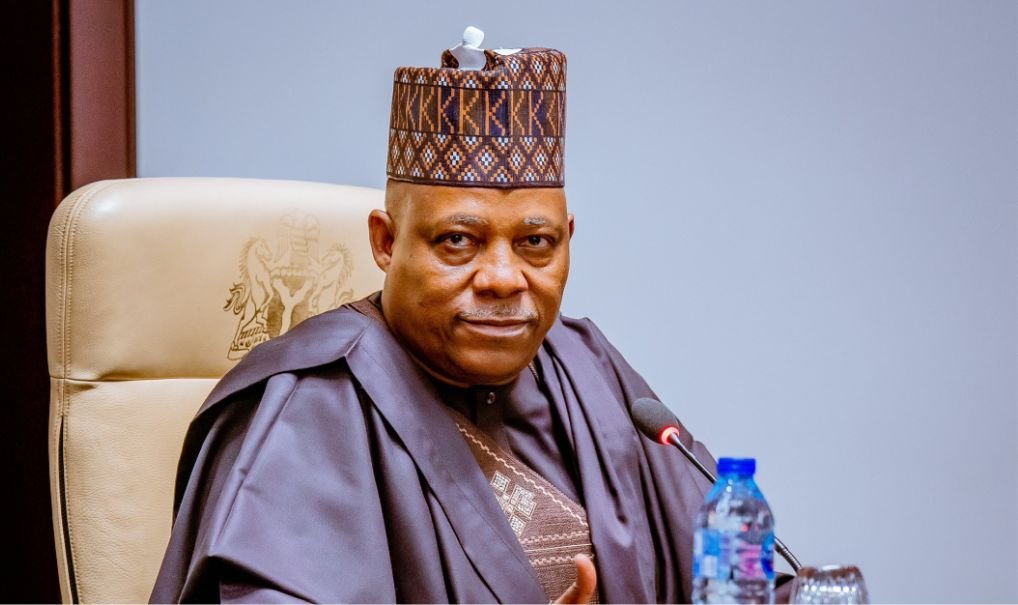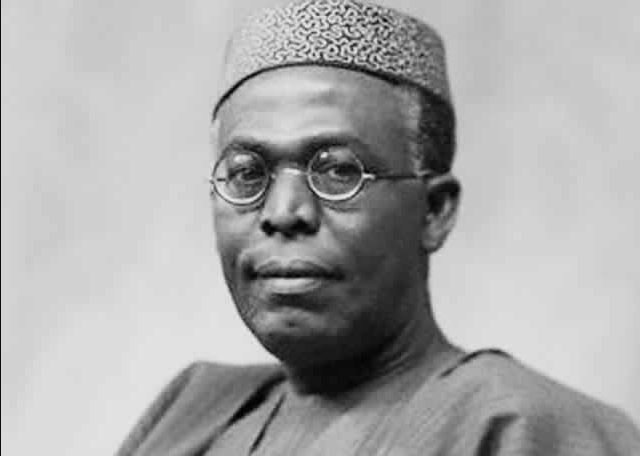
List Of Freedom Fighters In Nigeria
Name | Dates | Region | Contribution |
|---|---|---|---|
Herbert Macaulay | 1864-1946 | Lagos Colony | Considered "father of Nigerian nationalism," founded the Nigerian National Democratic Party (NNDP). |
Nnamdi Azikiwe | 1904-1996 | Eastern Nigeria | Zik of Africa," advocated for national unity, and co-founded the Nigerian Youth Movement (NYM) and the National Council of Nigeria and the Cameroons (NCNC). |
Obafemi Awolowo | (1909-1987 | Western Nigeria | Championed federalism and social justice, founded the Action Group focusing on economic development and social welfare. |
Ahmadu Bello | 1909-1966 | Northern Nigeria | Sardauna of Sokoto, a respected leader who served as Premier of Northern Nigeria, played a key role in negotiating independence. |
Tafawa Balewa | 1912-1966 | Northern Nigeria | Nigeria's first Prime Minister, a skilled negotiator who helped bridge regional divides. |
Funmilayo Ransome-Kuti | 1900-1978 | Western Nigeria | Prominent women's rights activist and political figure, advocated for self-governance and women's suffrage. |
Hajia Gambo Sawaba | 1912-1965 | Northern Nigeria | Defied social norms to advocate for women's rights and independence, faced persecution but remains a symbol of courage. |
Anthony Enahoro | 1925-2010 | Mid-Western Nigeria | Nationalist politician and activist, vocal critic of colonial rule, and a strong advocate for self-determination. |
Mabel King | 1904-1999 | Eastern Nigeria | Teacher, trade unionist, and political activist who fought for women's rights and fair labor practices. |
Isaac Adaka Boro | 1938-1968 | Niger Delta | Led the Ogoni people in a short-lived declaration of independence highlighting environmental concerns in the oil-producing region. |
Pioneers Of Nigerian Nationalism
The Nigerian fight for independence wasn’t a singular event, but a movement that grew over decades. This movement wouldn’t have been possible without the pioneering efforts of visionary Nigerians who dared to challenge colonial rule and plant the seeds of self-governance.
One of the most prominent figures in this early stage is Herbert Macaulay (1864-1946). Often referred to as the “father of Nigerian nationalism,” Macaulay was a journalist, politician, and vocal critic of British colonial policies.
He founded the Nigerian National Democratic Party (NNDP) in 1923, considered one of the first nationalist organizations in Nigeria.
Through newspapers like the Lagos Daily News, Macaulay exposed colonial injustices and advocated for a united Nigeria governed by its people.
Another notable figure is Dr. James Africanus Beale Horton (1835-1883), a medical doctor, writer, and pan-Africanist.
Though born in Sierra Leone, Horton spent time in Nigeria and became a strong advocate for West African unity and self-determination.
His writings addressed issues of colonial exploitation and the importance of education for Africans. Horton’s ideas resonated with later generations of Nigerian nationalists. However, these early pioneers faced a brutal battle.
Colonial authorities often dismissed their demands, and internal divisions within the Nigerian population presented challenges.
Their relentless pursuit of self-governance and their efforts to forge a national identity laid the groundwork for future leaders and organizations. The pioneers also inspired the formation of educational institutions that promoted a sense of national consciousness.
Schools like the King’s College in Lagos, established in 1908, provided a platform for intellectual discussions and the development of future leaders who would champion the cause of independence. The legacy of these pioneers is undeniable.
They provided a crucial starting point for the independence movement, inspiring future generations to fight for a free and united Nigeria.
Their vision and actions paved the way for the more prominent figures who would ultimately lead the nation to independence in 1960.
READ ALSO: Complete List Of Nigerian Presidents (From 1960 Till Date)
Key Political Figures
Nigeria’s path to independence wouldn’t have been possible without the tireless efforts of several key political figures.
These leaders, each with their own vision and approach, played central roles in negotiating with the British government and uniting the country towards self-rule.
1. Nnamdi Azikiwe (1904-1996), known as the “Zik of Africa,” was a charismatic leader who championed national unity.
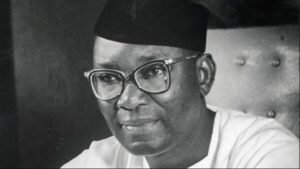
A journalist and politician, Azikiwe co-founded the Nigerian Youth Movement (NYM) and the National Council of Nigeria and the Cameroons (NCNC), a major political party during the independence struggle.
He advocated for a strong central government and used his influential newspapers to spread his message of unity across the country.
2. Obafemi Awolowo (1909-1987), a prominent leader from western Nigeria, stood in contrast to Azikiwe’s vision.
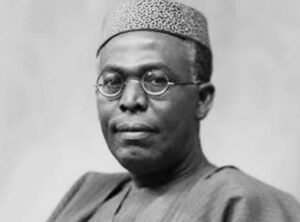
Awolowo endorsed federalism, a system of government that grants considerable autonomy to regional states.
He founded the Action Group, a party that focused on economic development and social welfare, particularly in his home region.
3. Ahmadu Bello, Sardauna of Sokoto (1909-1966), was an esteemed leader from northern Nigeria.
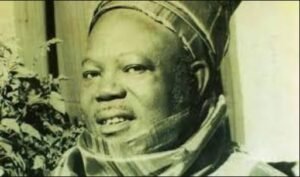
As the Premier of Northern Nigeria, Bello played a key role in negotiations with the British and other political leaders.
He advocated for the interests of the North, which had historically been less politically developed compared to the South. Bello’s cooperation with southern leaders was important in achieving a united front in independence talks.
4. Tafawa Balewa (1912-1966), Nigeria’s first Prime Minister after independence, emerged as a skilled negotiator who bridged regional divides.
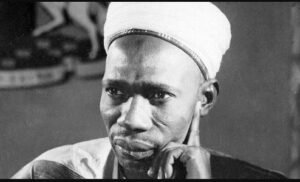
A founding member of the Northern People’s Congress (NPC), Balewa worked closely with Ahmadu Bello to represent the North’s interests.
His calm manners and diplomatic skills were essential in developing consensus among the various political factions during the pre-independence period. These key figures, despite their differing ideologies, ultimately shared a common goal: an independent Nigeria.
Women In The Fight For Freedom
While history often focuses on male leaders, a notable number of courageous women played important parts in dismantling colonial rule and advocating for a free Nigeria.
These women defied societal expectations and fought for not only their nation’s independence but also for women’s rights and equality.
One such figure is Funmilayo Ransome-Kuti (1900-1978), a pioneering Nigerian activist called the “Lioness of Lisabi.”
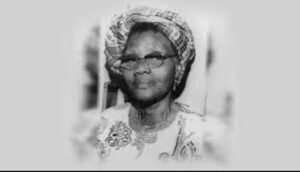
Ransome-Kuti was a teacher, political campaigner, and women’s rights advocate.
She mobilized market women through the Abeokuta Women’s Union (AWU) and the Nigerian Women’s Union (NWU) to fight against unfair taxes and advocate for greater political participation for women. Her fearless activism and powerful voice challenged the colonial administration and traditional gender roles.
Mabel King (1904-1999), another prominent figure, was a teacher, trade unionist, and political activist from eastern Nigeria. King co-founded the Nigerian Women’s Party and pursued social justice and fair labor practices.
She advocated for women’s education and fought against discriminatory practices that disadvantaged women in the workplace.
King’s legacy includes her tenacious commitment to women’s empowerment and economic independence. However, these women faced immense challenges.
Colonial authorities often dismissed their concerns, and societal norms limited their opportunities for participation in public life. The contributions of women like Ransome-Kuti and King grew beyond advocating for women’s rights.
They actively participated in the anti-colonial movement, organizing protests, raising awareness, and pressuring the British for self-rule. Their actions demonstrated that the fight for independence was a collective effort that transcended gender barriers.
To name a few, these are just two examples of the many Nigerian women who were instrumental in the independence struggle.
Unsung Heroes Of Independence
Alongside the well-known national figures, countless individuals were behind the scenes, pushing for self-rule.
Hajia Gambo Sawaba (1912-1965) is a powerful example.
This fearless activist from northern Nigeria fought societal norms to advocate for women’s rights and independence. Sawaba challenged the traditional power structure and mobilized women to participate in political discourse.
Despite facing persecution and imprisonment, her voice inspired numerous others to fight for a just and equal Nigeria.
Anthony Enahoro (1925-2010), a nationalist politician and activist from the Mid-Western region, is another unsung hero. Enahoro was a vocal critic of colonial rule and a strong supporter of self-determination.
Through his writing and activism, he exposed the injustices of colonialism and rallied support for independence. His commitment to freedom led to imprisonment and exile, yet his spirit remained unbroken.
Mabel Segun (1930-2014), a teacher and trade union leader, demonstrates the important part of educators in the independence movement.
Segun, with others like her, instilled a sense of national pride and social justice in their students, encouraging critical thinking and promoting a spirit of self-reliance, educators like Segun empowered future generations to challenge the colonial system.
These are just a few examples of the many unsung heroes who contributed to Nigeria’s independence. Writers, lawyers, labor organizers, and countless others dedicated their time, energy, and even their safety to the cause.
Regional Resistance Leaders
Leaders appeared across the country, supporting a free Nigeria while addressing the specific needs and concerns of their regions.
This section examines some of these regional resistance leaders who were a major part in shaping the fight for independence.
Isaac Adaka Boro (1938-1968) from the Niger Delta region is a minority rights activist, who led a short-lived declaration of independence for the Ogoni people in 1966.
This act, though unsuccessful militarily, brought international attention to the environmental concerns of the oil-producing region.
Mbonu Ojike (1908-1959), a lawyer and politician from eastern Nigeria, backed the cause of Igbo nationalism.
He founded the Zikist Movement, a political group that advocated for Igbo cultural identity and political participation within an independent Nigeria.
Ojike’s efforts ensured that the concerns of eastern Nigerians were heard and represented in the national independence movement.
Obafemi Awolowo (1909-1987), previously mentioned as a key national figure, also played an important role as a leader from western Nigeria. Awolowo endorsed a federal system of government that granted autonomy to regional states.
He thought this would allow each region to address its specific needs while still being part of a united Nigeria. Awolowo’s vision for a federal structure remains a cornerstone of Nigerian governance today.
READ ALSO: Who Was The First President Of Nigeria (And In What Year?)
Reference Sources:
